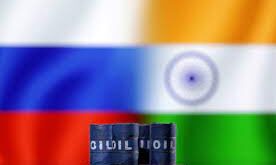It is easy to lose sight of the wood for the trees sometimes in the complex world of global oil. And perhaps no subject in that world involves so many different intricate moving parts as the extraordinary relationship between the Federal Government of Iraq (FGI), based in Baghdad, and the government of Iraq’s northern semi-autonomous region of Kurdistan (KRG), centred in Erbil. It is only when something such as the suspension of major flows of oil from Kurdistan to Turkey occurs, as began on 25 March, that many analysts start trying to unravel what has caused it. And they find themselves entering an ‘Alice In Wonderland’ world in which anything is possible, but nothing is as it seems. It is in this world, then, a step back should be taken, to answer precisely why the suspension is in place and when it will end.
Such a step back reveals clearly that the FGI – supported by Iran – does not want Iraq’s Kurdistan region to have any true autonomy. Shutting down the KRG’s ability to generate its own significant revenues through the sale of oil independently of the FGI is simply part of efforts to deny the region this independence. Sustained over a long enough period, Baghdad and Iran – and Russia and China too – believe that the Kurdistan region can rolled back into the rest of Iraq to all meaningful intents and purposes. The drive towards this reintegration was stepped up by Baghdad and Tehran dramatically stepped up their efforts to achieve this after the 2017 independence vote in Iraqi Kurdistan. It is apposite to note that the vote on independence for Iraq’s Kurdistan region only occurred through pressure from the U.S., as analysed in depth in my new book on the new global oil market order. Specifically, Washington had privately assured the Iraqi Kurds in 2014 that in exchange for their Peshmerga armed forces taking the principal combat role against a surging ISIS, they would eventually be given their own independent country. Although the 2017 independence did not automatically grant Iraqi Kurdistan its independence from Baghdad, it was seen by the U.S. as a litmus test of how such an independent Kurdistan would be received in the region. As it transpired, the 92.73 percent vote on 25 September 2017 in favour of Kurdish independence went down extremely badly with the remainder of Iraq, Iran, Syria, and Turkey. The key reason for this was that each of these countries had sizeable Kurdish populations themselves – Iran 9 percent, Syria 10 percent, and Turkey 18 percent – and the thought was that if the Iraqi Kurds successfully gained independence from Iraq then their own Kurdish populations might try to do the same.
Consequently, the 2017 Iraq Kurdistan independence vote was immediately followed by elements of Iran’s military rolling into Iraq Kurdistan, including the prime oil-rich areas. Additionally, very senior officers from Iran’s Quds branch of its Islamic Revolutionary Guards Corp, and from its Vezarat-e Ettela’at Jomhuri-ye Eslami-ye Iran intelligence service, made it clear to several of Iraq Kurdistan’s leading politicians that it would not be in their best interests to continue to push for independence from Iraq. At the same time, Major General Yahya Rahim Safavi, a top military adviser to Iran’s Supreme Leader Ali Khamenei, called for a blockade on Iraq Kurdistan’s land borders. Turkish President then as now, Recep Erdogan, also threatened to invade the Iraqi Kurdish area. He added that Turkey could also cut off the oil export pipeline from Iraq to the Turkish port of Ceyhan. At that point, the region was producing around an average of 500,000-600,000 bpd of oil exports, by far the mainstay of Iraq Kurdistan’s economy.
It was then that Russia stepped in, taking effective control of all of Iraqi Kurdistan’s oil sector through three key means. First, it provided the KRG with US$1.5 billion in financing through forward oil sales payable in the next three to five years. Second, it took an 80 percent working interest in five potentially major oil blocks in the region. And third, it established 60 percent ownership of the vital KRG oil pipeline to Ceyhan in Turkey by dint of a commitment to invest US$1.8 billion to increase its capacity to one million barrels per day. Over and above specific oil and gas exploration and development opportunities, Russia saw an opportunity to leverage its new-found influence in Iraq Kurdistan into the rest of Iraq too. Already active in several oil fields in Iraq, it wanted to expand this presence, including into those with significant gas resources. Russia also wanted to support the already extensive influence in Iraq of one of its key allies in the region, Iran. The principal method it used as leverage was the ‘oil-for-budget disbursements’ deal done between the KRG and FGI back in 2014. By ensconcing itself first in the heart of Iraq Kurdistan and then in the key role of negotiator in the oil-for-budget disbursements deal with the FGI, Russia could ensure that the KRG was under its effective control, and that the government in Baghdad would fall into line at some point, as also analysed in depth in my new book on the new global oil market order. At the end of 2020/beginning of 2021, China stepped into Iraq to support Russia’s efforts, as also analysed in my book, using the same strategy in Baghdad as Russia had used in 2017 with the KRG.
By that point, then, the 2014 oil-for-budget disbursements deal between the KRG and the FGI had ceased to function in any meaningful way. The situation was not helped by the lack of legal clarity over whether the KRG is entitled to sell its oil independently from SOMO and Baghdad. According to the KRG, it has authority under Articles 112 and 115 of the Iraq Constitution to manage oil and gas in the Kurdistan Region extracted from fields that were not in production in 2005 – the year that the Constitution was adopted by referendum. The KRG also maintains that Article 115 states: “All powers not stipulated in the exclusive powers of the federal government belong to the authorities of the regions and governorates that are not organised in a region.” As such, the KRG argues that as relevant powers are not otherwise stipulated in the Constitution, it has the authority to sell and receive revenue from its oil and gas exports. However, the FGI in Baghdad and SOMO argue that under Article 111 of the Constitution oil and gas are under the ownership of all the people of Iraq in all the regions and governorates. Consequently, they believe that all oil and gas developed across all of Iraq should be sold through official channels of the central FGI in Baghdad.
The 25 March turning point for the halting of all independent oil exports from Iraq Kurdistan was the ruling by the International Chamber of Commerce (ICC) that Turkey is legally only allowed to purchase oil via SOMO. Consequently, Kurdish oil production dropped from around 450,000 bpd to around 20,000 bpd at most currently, according to SOMO data. The ICC also ruled that Turkey must pay the FGI around US$1.47 billion in compensation for having facilitated Iraqi Kurdish oil exports between 2014 and 2018 without the Iraqi federal government’s permission. Although Turkey expected the compensation to be much higher, a senior European Union energy security source exclusively told OilPrice.com last week, it has nonetheless sent a list of conditions to the FGI in Baghdad that needed to be met before it would consider resuming oil imports from Iraq Kurdistan. It is a very long list, including a reduction in compensation, guaranteed discounts on oil purchases, withdrawal of a second lawsuit from Baghdad still pending at the ICC, and guaranteed payments for the maintenance of the Ceyhan pipeline, among others.
According to the E.U. source last week, Baghdad has no interest whatsoever in agreeing to any of Turkey’s terms. It also has no interest in Iraq Kurdistan resuming its independent oil sales either. “On the one hand, independent oil sales jeopardise the oil flows that are meant to be sent to Baghdad to sell, so there is no upside to that for the FGI,” he said. “On the other hand, Baghdad does not want the oil either, as if [Iraq] Kurdistan resumed full production it would put it [Iraq] over its OPEC+ quota,” he added. “As Baghdad does not see an independent Kurdistan in the future of Iraq, it sees the best solution as keeping the independent oil sales stopped and the Kurds financially paralysed,” he concluded. This view finds further resonance in a statement late last week from Iraqi Prime Minister, Mohammed Al-Sudani, that Baghdad has drafted a new oil and gas law that will unify regulations in the industry in all governorates, including the Kurdistan region.

 Iran Energy News Oil, Gas, Petrochemical and Energy Field Specialized Channel
Iran Energy News Oil, Gas, Petrochemical and Energy Field Specialized Channel



